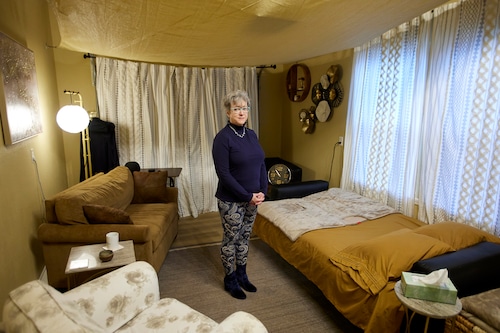When Oregon became the first state in the US to allow the therapeutic use of psilocybin, a substance found in psychedelic mushrooms, drug reform activists praised the state as a progressive pioneer.
However, four years later, voters in an increasing number of its cities have decided to outlaw the drug.
In the Nov. 5 election, four cities—including rural and coastal communities and the suburbs of Portland—adopted new, voter-approved bans on the nationally prohibited chemical. In 2022, when most Oregon counties and more than 100 towns decided to temporarily or permanently ban psilocybin, a dozen other municipalities adopted two-year moratoriums. In this election, those localities voted to make the restrictions permanent.
Following the fentanyl crisis, some experts are wondering if voters are reconsidering their desire for drug liberalization laws after they were rejected in Oregon and other states this election.
For instance, a bill that would have let citizens over 21 to cultivate and use plant-based psychedelic substances under specific conditions was rejected by Massachusetts voters. Every one of the three states that considered legalizing marijuana for recreational use voted against it.
Voters in Oregon, in particular, seem to have lost interest in drug reform. Following intense discussion on whether it contributed to an increase in drug usage and fatalities in the public, the state assembly earlier this year repealed a law that was approved by voters four years ago and decriminalized the possession of small amounts of dangerous substances, including as heroin and methamphetamine.
Josh Hardman, the founder of Psychedelics Alpha, a consulting firm and newsletter on psychedelic research, business, and policy, speculated that the apparent swing back toward prohibition in drug policy reform may be a reflection of a larger trend among American voters toward a preference for law and order. In particular, Oregon has been cited as an illustration of liberal drug policies gone wrong.
Psilocybin is still available in more than 30 licensed locations throughout the state’s largest cities, including Portland, and a few smaller communities, despite the local prohibitions. Additionally, a few rural counties have decided to remain in the program.
However, the hefty expense of therapeutic psilocybin—up to $2,000 out of pocket for a single session—makes accessing it even more difficult. This is primarily due to the fact that in order to remain viable, center owners and facilitators must charge customers for their licenses.
Posing for a patient journey in a room at her Gresham, Oregon, facility on Monday, November 18, 2024, is MJ Wilt, a registered psilocybin facilitator and the proprietor of a licensed psilocybin service center. (Craig Mitchelldyer/AP Photo)
Tens of thousands of dollars of MJ Wilt’s personal funds were used to obtain a license and set up her center, which she recently opened in the Gresham area of Portland. “It has been challenging because I want to share my positive life-changing experience with psilocybin with others,” she said.
According to Wilt, the program’s cost has been exorbitant and is out of reach for people from all socioeconomic backgrounds. It’s most definitely not the cash cow that people believe it will be.
Measure 109, which permitted the production and restricted, medicinal use of psilocybin at facilities licensed by the state of Oregon, was adopted by around 56% of voters in 2020. However, the bill gave counties and localities the option to vote to opt out, which led to a patchwork of laws throughout the state.
Because counties control unincorporated land and cities control incorporated territory, several cities have chosen to legalize psilocybin even if they are in counties that have prohibited it, further complicating matters.
The hodgepodge of regulations is similar to the cannabis law. According to Kate Bryan, a policy specialist on criminal and civil justice at the National Conference of State Legislatures, localities may choose to exclude most forms of cannabis companies in half of the 24 states that have legalized cannabis for recreational use, including Oregon.
The only other state to approve psilocybin for medical purposes was Colorado in 2022. In an email, a representative for the state’s natural medicine division stated that it will start taking licensing applications for healing centers at the end of December. Although the law permits cities to enact specific rules governing the centers’ operations, it does not permit them to completely outlaw them.
A number of localities nationwide have also decided to decriminalize psilocybin, which means that a person who possesses small amounts of plant-based hallucinogens cannot be detained or charged.
Several types of mushrooms contain psilocybin, which can produce intense hallucinations for hours at a time. Scientists are investigating whether it can help cure depression, addiction, and post-traumatic stress disorder. Indigenous people have utilized it in healing ceremonies. Among those who have pushed for the substance’s study for therapeutic usage are researchers and veterans of the armed forces.
In its first year of operation, Fractal Soul, a licensed psilocybin center in the Beaverton suburb of Portland, has serviced 400 clients, and the great majority of them have seen excellent results, according to Kat Thompson, the center’s founder and CEO. Some come to process their sorrow or explore their faith, while many come for help with depression, anxiety, trauma, and addiction after years of attempting talk therapy and medication, she added.
However, she claimed that because of a lack of knowledge, many people mistake the state’s psilocybin program for Measure 110, a separate ballot item that was also approved in 2020 and decriminalized the possession of small amounts of drugs. The law’s disastrous execution, which was the first of its kind in the country, and the growing number of overdose deaths during the fentanyl epidemic stoked opposition, leading state lawmakers to rescind it earlier this year.
According to Thompson, we received numerous calls from clients who had scheduled appointments with us and believed that we were closing after learning about the rollback of 110. We have so had to inform and clarify to the public that the true purpose of Measure 110 was decriminalization for personal use. The professional therapeutic model is unrelated to it.
Additionally, some people mistake the psilocybin center’s model for cannabis retailers. People purchase cannabis at dispensaries and then go elsewhere to use it. Meanwhile, those who wish to use psilocybin must do so at a certified service center while being watched over by a licensed facilitator who gives them the drug and stays with them the entire time, Thompson added.
She explained, “This is basically a mental health clinic where someone is here with us all day.” Generally speaking, it is very safe.
An Oregon Health Authority spokesman confirmed reporting from The Oregonian/OregonLive in an email that personnel at these centers had phoned 911 or transported a patient to a hospital five times out of the more than 16,000 doses that have been delivered since the first licensed center opened in June 2023. The most recent data from the government shows that there are about 350 licensed facilitators and 12 psilocybin manufacturers in the state.
Even though the majority of the city’s citizens approved Measure 109 in 2020, Joe Buck, the mayor of Lake Oswego, a Portland suburb that just passed a psilocybin prohibition, said he wasn’t shocked by the result.
He claimed that Oregon’s drug policy management has been appalling. Therefore, I can see why some individuals might be leery of the claims being made about psilocybin these days.
However, he said that more psilocybin study might alter voters’ opinions in the future.
Getting these pharmaceuticals through a good system that fosters community trust is ultimately the responsibility of state and federal officials.
— The Associated Press’s Claire Rush
Note: Every piece of content is rigorously reviewed by our team of experienced writers and editors to ensure its accuracy. Our writers use credible sources and adhere to strict fact-checking protocols to verify all claims and data before publication. If an error is identified, we promptly correct it and strive for transparency in all updates, feel free to reach out to us via email. We appreciate your trust and support!




